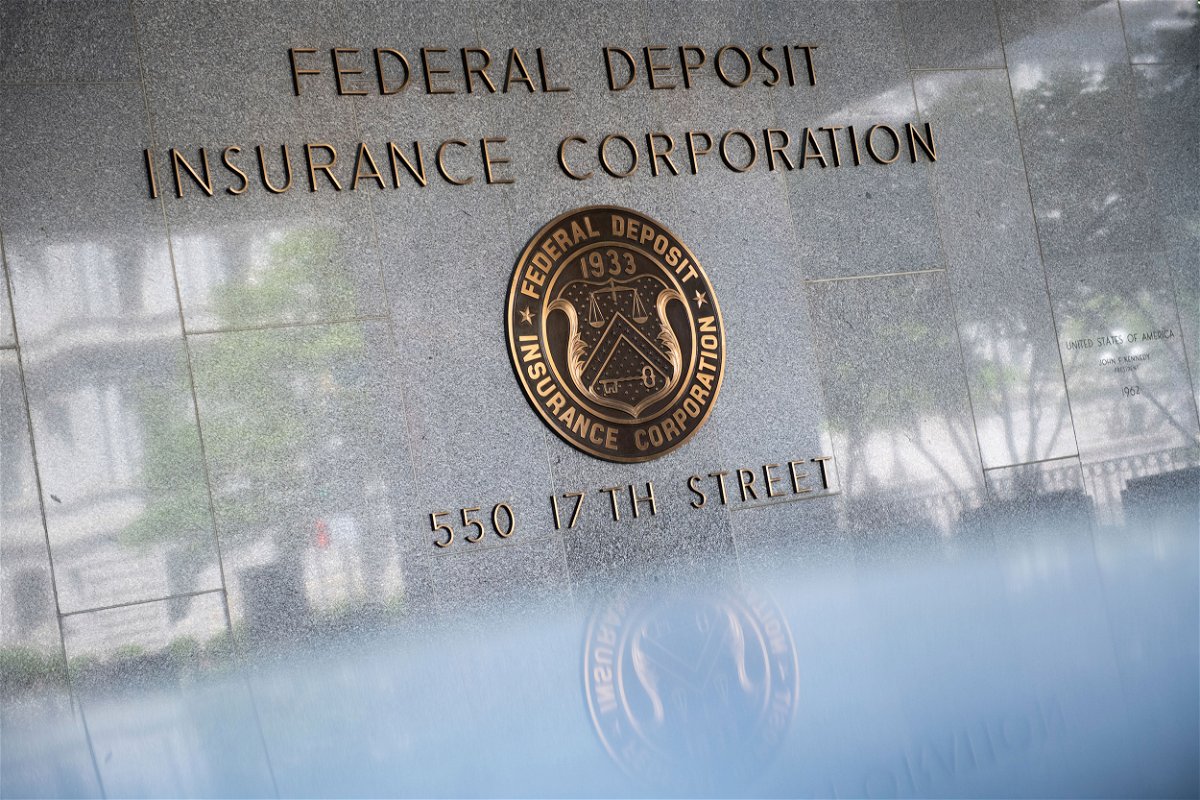FDIC calls to boost deposit insurance above $250,000 for some accounts

A general view of the Federal Deposit Insurance Corporation (FDIC) logo on its headquarters in Washington
By Elisabeth Buchwald, CNN
The Federal Deposit Insurance Corporation is advocating for an increase in the deposit insurance limit for business payment accounts following the three recent bank failures.
Currently, the FDIC insures up to $250,000 per depositor for each account ownership category. But the agency backed deposits exceeding that limit when Silicon Valley Bank and Signature Bank failed, in order to reduce the risk of further bank runs. It also provided temporary unlimited deposit insurance to non-interest bearing accounts in the wake of the Great Recession.
Individuals can easily get more coverage by opening additional accounts at different banks. But that’s much more complicated for businesses, which generally keep the funds they use to pay employees in one bank account, according to the FDIC.
For instance, after the collapse of SVB, Etsy had to delay payments by a day to small portion of sellers, but the company said it wasn’t due to an issue over available funds. Meanwhile, Roku kept about $500 million in deposits at SVB, almost the entirety of which would have been unrecoverable had the FDIC not stepped in to insure deposits above the $250,000 cap. Roku did not respond to CNN’s request for a comment.
The agency’s proposal, outlined in a report it released Monday, did not specify what it thinks would be an appropriate increased level of deposit insurance for business payment accounts.
The FDIC considered two other deposit insurance reforms: raising the insurance cap across all bank accounts, and extending unlimited deposit insurance to all accounts. It found that targeting business accounts for increased insurance was the best option since it has the largest “financial stability benefits relative to its costs.”
Increasing deposit insurance poses a moral hazard since it could lead to banks taking on more risk with their depositors’ money without having to worry as much about a bank run.
There’s also a cost associated with raising the insurance cap.
The fund used to back depositors’ money is financed by premiums that banks and savings institutions pay. That fund had a balance of $128.2 billion at the end of 2022. But after the FDIC seized First Republic Bank on Monday, and following Silicon Valley Bank and Signature Bank’s failures, it is estimated to have a balance of $92.7 billion, the lowest since 2018.
Increasing the insurance cap on business payment accounts would likely result in increasing the premiums that banks pay to the FDIC. And doing so would most likely require Congressional action, FDIC officials said.
The-CNN-Wire
™ & © 2023 Cable News Network, Inc., a Warner Bros. Discovery Company. All rights reserved.